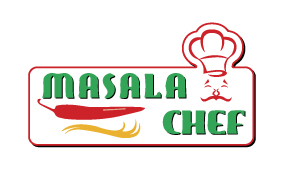Akansha Pandey (cbedit@imaws.org)
One of the most popular condiments for years now, tomato ketchup market segment is projected to register a Compound Annual Growth Rate (CAGR) of 5.2% during the forecast period (2022-2027), as published by Mordor Intelligence. The increasing change in the food habits and consumption of fast-food products like Chinese, continental and other convenient snacking items has made the tomato ketchup the inseparable go-to option for the consumer. However, with time and more so post-COVID the consumer has also realised the need to pick for healthier food options which have, in turn, fuelled the innovations among the ketchup manufacturers. Ketchup makers are now carefully listening to the growing concerns of the consumer and rapidly updating (or are in the process) their product line with less salt, natural sugar, organic tomatoes and sustainable packaging.

Ketchup manufacturer – Cropino Pvt Ltd is based out of Jamnagar in Gujarat (India) and supplies to the general and modern trade stores. They also do white labelling for brands. Kundan Tiwari, an Assistant General Manager with Cropino highlights that the tomato ketchup market size is increasing year on year and the consumer demands have now moved on to the healthier versions of the products. “We are constantly getting calls from our buyers for sugar-free varieties of tomato ketchup. They insist on adding jaggery or any similar healthier alternative to sugar but the consumer isn’t willing to compromise on the product taste. We are at a post-COVID stage where consumers want to go back to the basics like eating jaggery, etc. The market has simultaneously woken up to organic and vegan products and the demand for tomato ketchup is also shifting accordingly. Tiwari is seeing more and more feedback for manufacturing organic and vegan ketchup. These two requirements are continuously in demand in recent time, he adds.

Located in Gurugram, Haryana (India), Wingreens Farms Pvt Ltd directly sells to all modern trade stores and from their own website. Jitender Kukreja, Senior Manager – Exports and Key Accounts with Wingreens Farms also agrees that nowadays people are liking ketchup which is natural, minimally processed and possess the real taste of tomatoes. They are also on the lookout for tomato ketchup which is free from preservatives and made up of natural sugar. Kukreja shares, “The demand for less salt and sugar in ketchup is also growing at a staggering rate as nowadays people are selective and more health-conscious. Customers are voicing their opinion about the natural sugar content in ketchup and avoiding refined ones. Jaggery is a good substitute for sugar with no after-effects of consuming tomato ketchup daily.”

The demand for quality sauces had increased post-COVID era. Symega Food Ingredients, has recently launched ‘Cuisinary’ – Symega’s B2B foodservice brand offering a standard set of products which can be used by any restaurant or food outlet. Symega has completely changed the brand’s identity and added a number of new products to the portfolio. “Post pandemic, the Indian seasoning industry as a whole had found a steep increase in the sales. One reason I can say this is most of the consumers started experimenting. Any seasoning product today is experimented with a Dosa or Chapatti. Even the non-veg foods had also found their good share of testing in most Indian kitchens. This had created a challenge in the commercial kitchens. While restaurant-style foods are more commonly used in homes, the chefs have to be innovative in their recipes”, says Santhosh Stephen – Managing Director – SYMEGA Food Ingredients. They reach out across India through 42 distributors and 24 field sales forces.
Even the packaging ballgame has taken a new route. In a move aimed at advancing the company’s sustainable packaging and climate goals, The Kraft Heinz Company announced plans to develop a paper-based version of its iconic Heinz Ketchup bottle. Tomato ketchup which was earlier sold in glass bottles is now moving towards recycle-friendly plastic bottles and even nozzle packs offering zero spillage risk. In the past, people were under the notion that if ketchup is sold in plastic bottles, its taste might get affected, but it holds no truth in today’s times.
Jumping on the sustainability bandwagon, a few companies which were selling their products on the higher side have now moved to the plastic bottles also because the plastic industry and plastic engineering are rapidly developing in India, share Tiwari. The plastic ketchup bottles available in the market today are recyclable. These plastic bottles are multi-layered thus they don’t affect the quality of the ketchup. Most importantly, every company which is operating a ketchup business want to have an 8 or 10 gram of sachet packing-which is a non-profitable model. However, it does create a market for the brand and ensures a recall value of the product in the minds of the consumer.
Wingreens Farms avoids using plastic bottles for their ketchup. Rather their packaging mainly revolves around laminated nozzle packs that are squeezy in nature, cutlery free and gives a contamination-free experience to the customer on the go. One can use it depending upon the requirement, cover the lid and re-use it later, exclaims Kukreja.
On the other hand, other sauce options like schezwan sauce are catching the fancy of the customer. Citing his opinion on the same, Tiwari comments that different regions of India view tomato ketchup differently. The demand for schezwan sauce is rising but tomato ketchup has its own market. The schezwan sauce segment is performing well in the north side but not in the western part of the country. Keeping the changing palate of the people from Gujarat in mind and to counter the growing demand for schezwan sauce, we have developed a chilli garlic sauce which is more on the sweeter side.
The new schezwan sauce is customer-friendly and people like to consume it but the usage and the tradition of tomato ketchup in India can’t be replaced with any other sauce, feels Kukreja. We are already selling a spicy range of tomato ketchup in our portfolio and the product name is peri peri tomato ketchup. It’s doing extremely well all across India, he highlights.
Giving his two cents, Kukreja states that to lure the health-conscious consumer, companies should manufacture tomato ketchup with the best available tomatoes. “If you see the consumer brands or the brands which are more into the cheaper segments, they are using other vegetables in the ketchup manufacturing to give the customers a feel of ketchup. Brands should produce tomato ketchup from natural tomatoes without any artificial colouring or flavouring if they want to sustain in the long run,” he stresses.
WAY FORWARD

Sunil of Ohms Food products, a Chennai-based manufacturer of Sauces, Ketchups & Sauces, Soya Sauce, Tomato Sauce, Chilly Sauce, Green Chilly Sauce, Fruit Jam, Mixed Fruit Jam says, that mayonnaise is one product that is generating more demand in the market. “On the export market, we feel that Indian sauce companies have to modify according to the international standards. Some changes in the taste and spice are much needed to survive in the international arena” He also said that the tomato, chilli and soy sauces are not just a dip used to consume along with the food but also the main ingredient in the making of the product.
THIS ARTICLE IS POWERED BY








